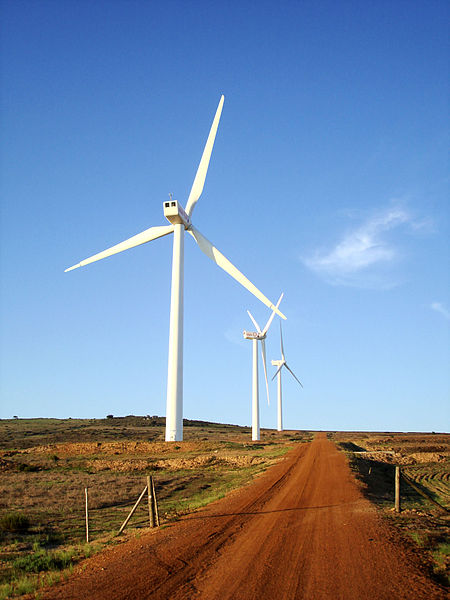Just transition is a framework developed by the trade union movement to encompass a range of social interventions needed to secure workers' rights and livelihoods when economies are shifting to sustainable production, primarily combating climate change and protecting biodiversity. In Europe, advocates for a just transition want to unite social and climate justice, for example, for coal workers in coal-dependent developing regions who lack employment opportunities beyond coal.
Protestor in Melbourne calling for a just transition and decarbonisation
An energy transition is a major structural change to energy supply and consumption in an energy system. Currently, a transition to sustainable energy is underway to limit climate change. As much sustainable energy is renewable it is also known as the renewable energy transition. The current transition aims to reduce greenhouse gas emissions from energy quickly and sustainably, mostly by phasing-down fossil fuels and changing as many processes as possible to operate on low carbon electricity. A previous energy transition perhaps took place during the Industrial Revolution from 1760 onwards, from wood and other biomass to coal, followed by oil and later natural gas.
Example of Distributed generation use of renewable energies: Agricultural business with biogas plant and photovoltaic roof
The 22,500 MW Three Gorges Dam hydroelectric power plant in China, the largest hydroelectric power station in the world.
Image: Andasol Guadix 4
Image: Darling Wind Farm





